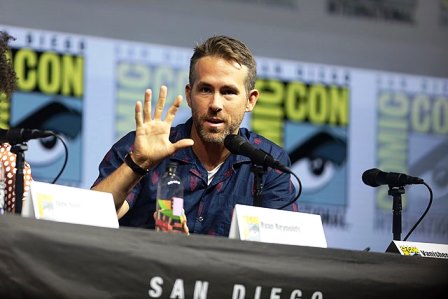Famous sportsmen and actresses often earn millions of dollars from their professions. However, the multimillion-dollar agreements they make are often eclipsed by the lucrative brand partnerships linked with their well-known names and features.
“My job is storytelling,” Ryan Reynolds said to CNBC.
Telling your experience is typically not a problem, but getting others to listen to you might be. Hiring someone like Reynolds, who is almost universally recognised and adored by millions, may attract customers for the few additional seconds required to communicate a company’s message.
Reynolds allegedly possessed a 25% share in Mint Mobile at the time of its $1.35 billion sale to T-Mobile, which netted him more than $330 million. In addition, the actor invented and sold Aviation American Gin for $610 million. Reynolds is said to have made up to $122 million from the purchase.
Many consider Reynolds to be a brilliant investor since he frequently sees nine- and ten-figure exits. Reynolds, on the other hand, claims he does not view himself in that light. He told Fortune that he’s “no wizard” when it comes to investing, and that the key is “emotional investment” in the businesses he owns.
The strategy is known as “valued-added investing,” and Reynolds is widely regarded as the master of it.
It’s a strategy used often by venture capitalists and angel investors. People with enormous quantities of money often invest millions of dollars in companies in their early phases and then utilise their knowledge to help the firm expand. Marketing is sometimes one of the most difficult obstacles for early-stage enterprises to overcome. Investors like Reynolds may utilise their brand and face to communicate the startup’s narrative, significantly increasing what would otherwise be a low return on marketing expenditure.
The method is also popular among venture capitalists and angel investors, such as Reynolds, and has grown in popularity among retail investors who use equity crowdfunding sites such as StartEngine.
Startups may raise funds via crowdsourcing from their consumers and supporters. This often results in a fan following of dedicated consumers who may help the firm develop. While a single retail investment in a firm is unlikely to have a significant influence on a startup, an army of thousands assisting in the growth of a brand may.
Reynolds has already decided on his next investment: Nuvei Corp. (NASDAQ:NVEI). The stock has plunged more than 60% since Reynolds declared he had an interest in the firm in April. This includes a recent 40% drop due to low profits.
Reynolds is also an angel investor in a number of other startups and businesses. 1Password, Wealthsimple Inc., Wrexham Association Football Club, and Alpine F1 Team are among his emerging stars. He’s also attempting to acquire the Ottawa Senators.
The Nuvei debacle and Reynolds’ string of nine-figure exits show that startup financing can be both dangerous and rewarding.
More in Entertainment: https://buzzing.today/entertainment/
Photo Credits: https://commons.wikimedia.org/
